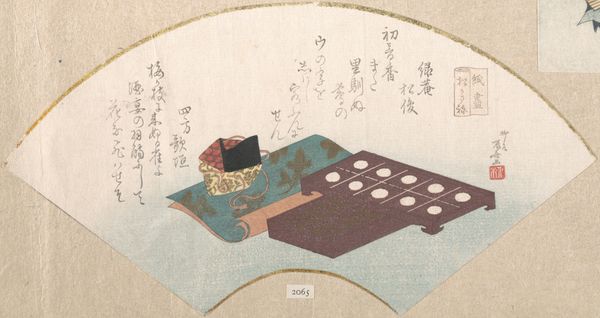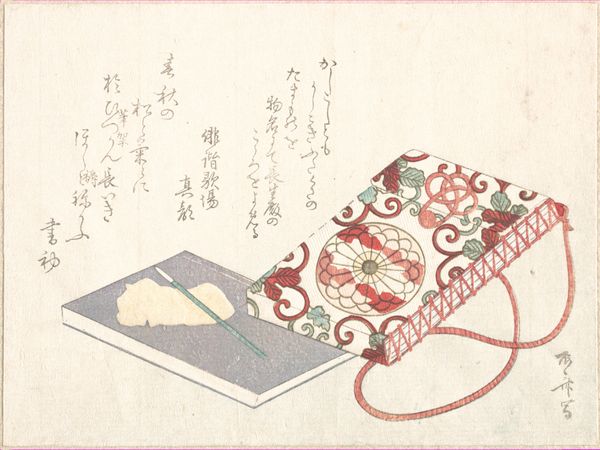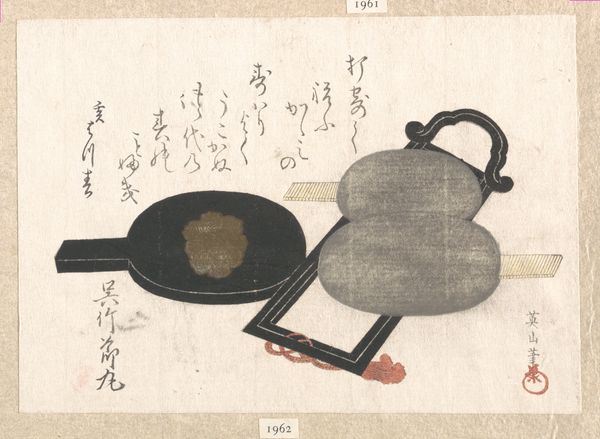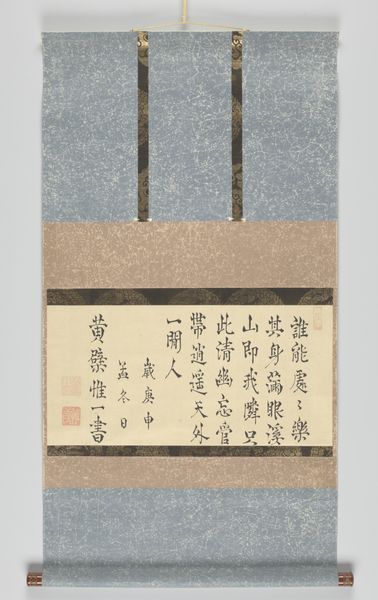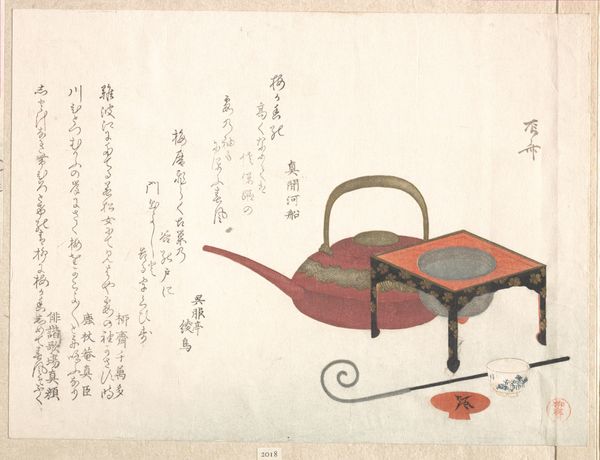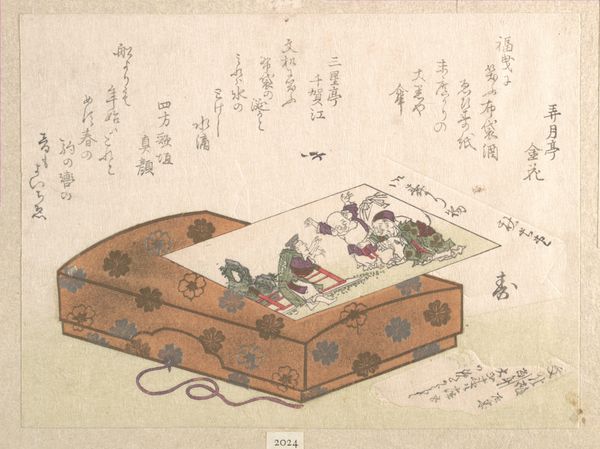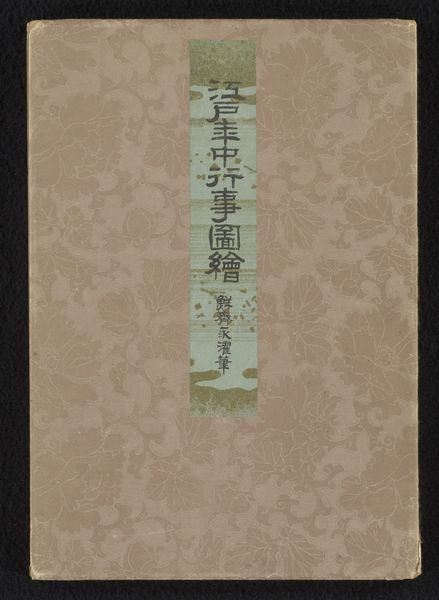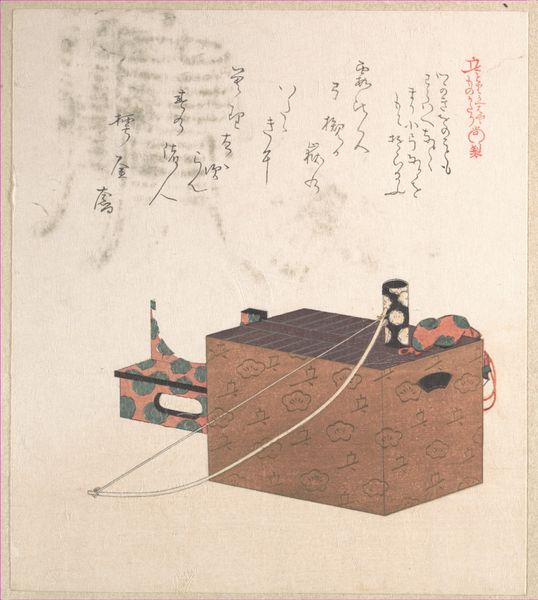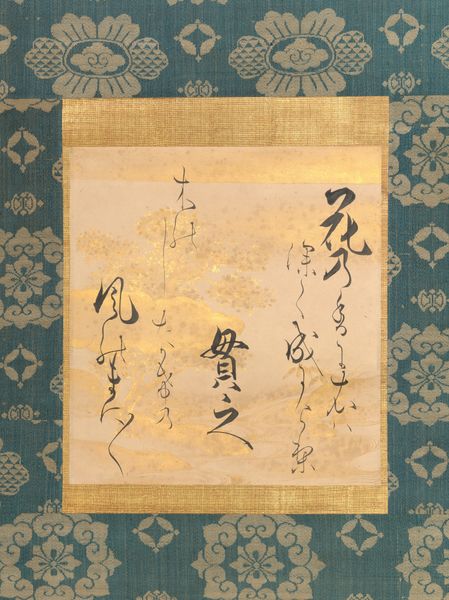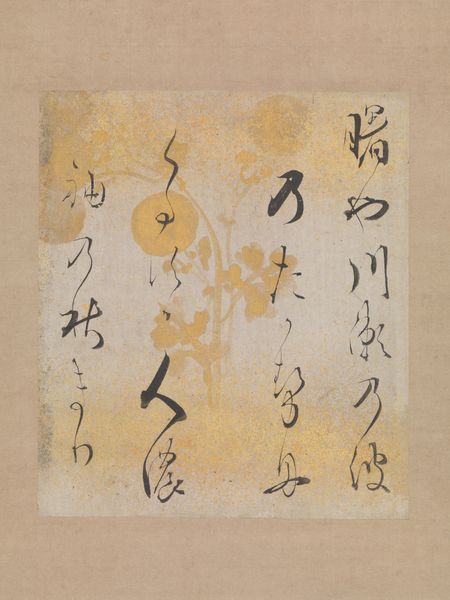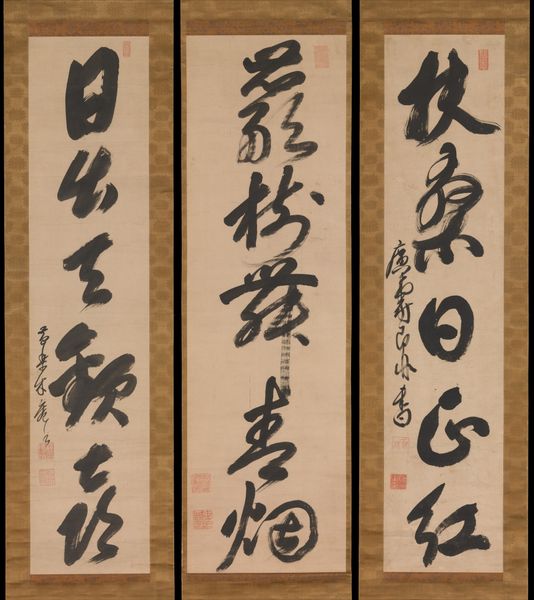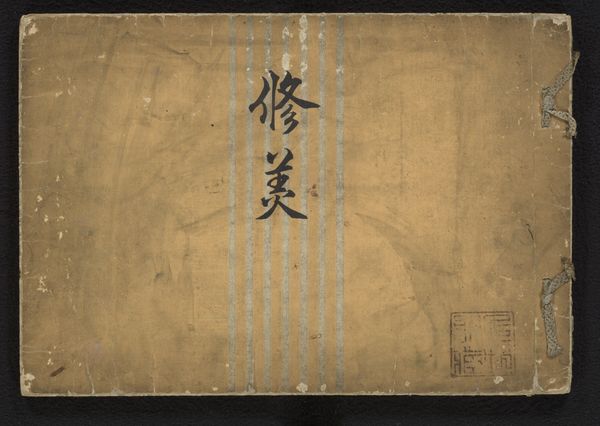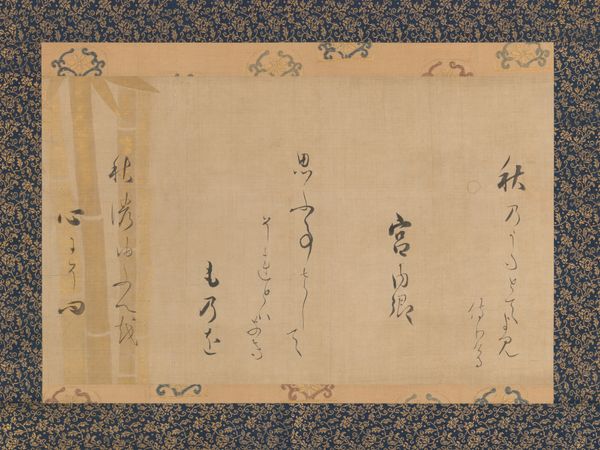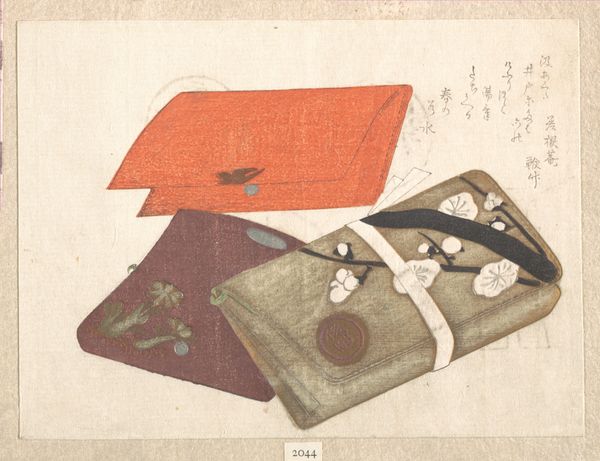
Rat on a Fūchin, Ornament with a Design of Egoyomi (Pictorial Calendar) 1816
0:00
0:00
print, woodblock-print
# print
#
asian-art
#
old engraving style
#
landscape
#
ukiyo-e
#
woodblock-print
#
miniature
Dimensions: 5 9/16 x 5 1/2 in. (14.1 x 14 cm)
Copyright: Public Domain
Kubo Shunman created this woodblock print, titled "Rat on a Fūchin, Ornament with a Design of Egoyomi (Pictorial Calendar)," sometime between the late 18th and early 19th centuries. The central motifs here are, of course, the rat and the Fūchin, a wind chime ornament often found in Japanese homes. The rat, in East Asian cultures, is not merely a pest but also a symbol of prosperity and resourcefulness. Placed atop the Fūchin, it suggests an elevation of the everyday into something auspicious. This juxtaposition invites a deeper look. Consider how animal symbols resonate through time: the snake in ancient Greece as a symbol of medicine, or the lion representing courage and royalty. These symbols evolve, but their roots in human psychology remain. The Fūchin is adorned with a design of Egoyomi, a pictorial calendar. Calendars are a universal effort to impose order on the chaos of time, but pictorial calendars go further, blending utility with aesthetics. The playful combination of rat, calendar, and wind chime touches something primal in us. It speaks to our need for control, our embrace of fortune, and our love of beauty, all intertwined.
Comments
No comments
Be the first to comment and join the conversation on the ultimate creative platform.
